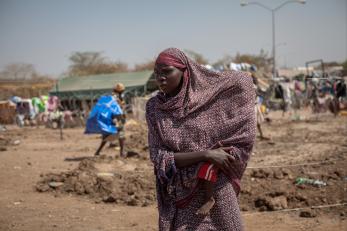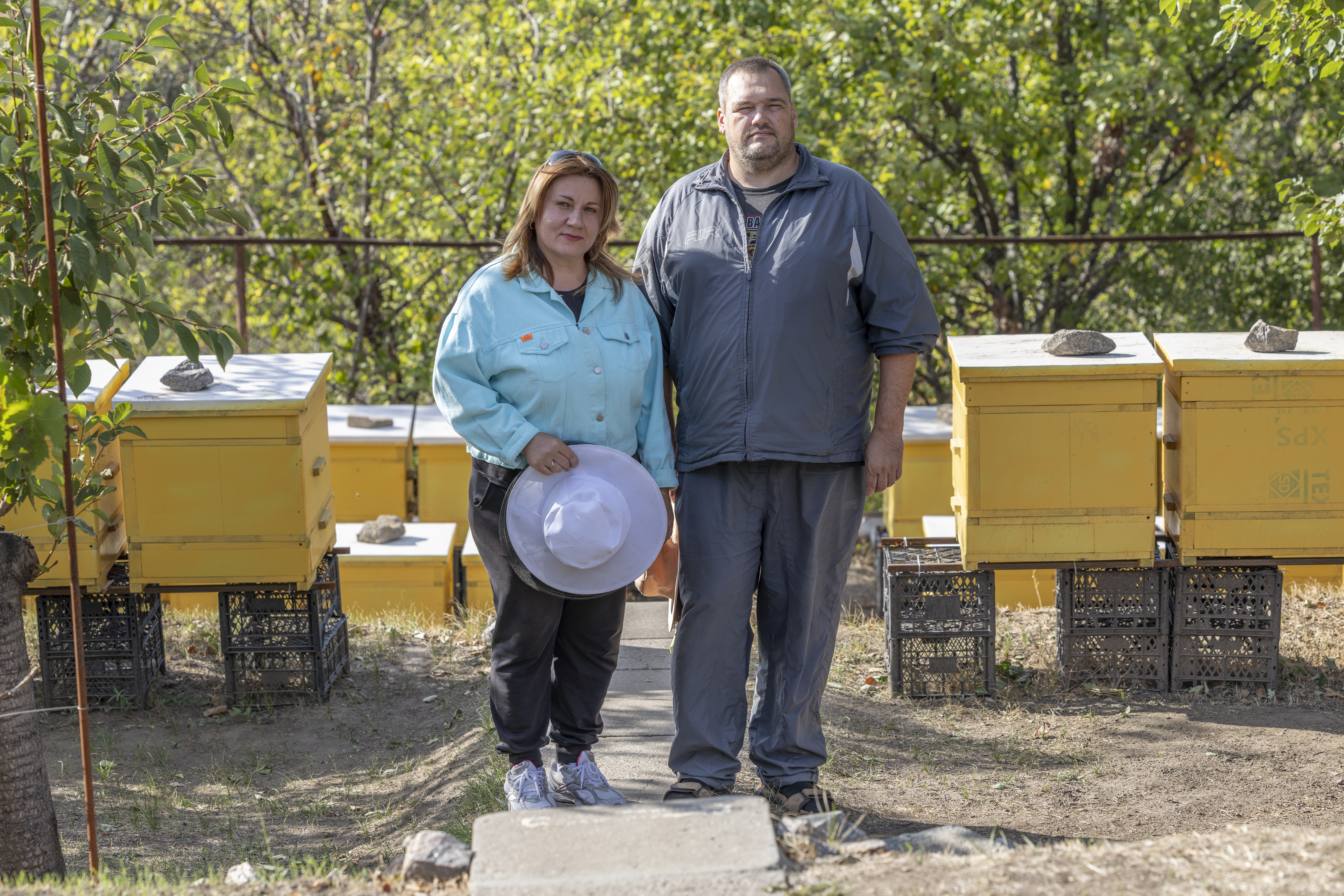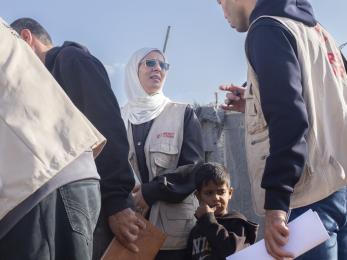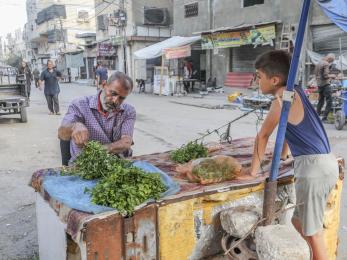What we must do to prevent tragedy: 5 urgent needs

Today marks the third anniversary of South Sudan’s independence. Since that hard-won achievement, the celebration has been tragically short-lived. The world’s youngest country was fragile and underdeveloped, but making the first steps of progress when violent conflict erupted this past December.
Since then, a catastrophic humanitarian crisis has engulfed the nation at a shocking rate. More than 1.5 million people have fled their homes. Cholera is spreading rapidly during the current rainy season and local water systems, many of which have been contaminated, are unable to meet the mounting needs of so many people crowded into unsanitary conditions.
Most alarming: Right now roughly 3.5 million people — 30 percent of South Sudan’s population — are experiencing acute emergency levels of food insecurity. Africa’s worst famine in more than two decades could hit as soon as August.
“There is no time to wait, action is needed now. Signs of malnutrition are present and a famine is predicted on the near horizon,” said Mercy Corps’ new Country Director in South Sudan, Mohammed Qazilbash. “People are even resorting to eating soil and grasses.”
Mercy Corps and our fellow humanitarian organizations are working to provide life-saving assistance to those who need it most – but we need extraordinary support in the face of extraordinary demands. Below are five immediate needs that can help prevent major loss of life in South Sudan:
- Peace: In just seven months, conflict has driven 1.5 million from their homes. Violence persists daily, displacing new families into the bush or crowded displacement sites. Because of the conflict, families have been unable to plant their crops, taking the country from food-insecure to the edge of devastating famine.
- Reach: We must help the people most at risk, including children, adolescents, and women living in opposition-controlled or isolated areas. Famine will hit the hardest in these difficult-to-access places, and we need support to reach those with the most urgent needs.
- Access: Opposition forces and the governments of South Sudan and bordering countries control the roads, rivers and airports that we need to provide life-saving supplies. The young nation’s lack of pre-existing infrastructure, coupled with flooding, makes transportation even more challenging. Pathways must be kept open to allow us to reach the remote areas where people are most in need.
- Funding: A global response plan is in place, but the U.N. estimates that it will take $1.8 billion to address the humanitarian needs of all those affected by this crisis. Less than half of that that funding has been raised. Donors, from governments to individuals, must help with that effort and increase supplies of food, water, shelter and sanitation for the people of South Sudan.
- Your help: Since expanding our emergency response in January, Mercy Corps has increased crisis education across the country and become the leading provider of clean water, sanitation and hygiene services in famine-threatened Bentiu, Unity State. We’ve built safe spaces for children in the camps and distributed seeds and fast-growing crops to families in more secure areas. But we must do more. Your support will help us scale up our response — distributing emergency food, clean water and health supplies more quickly and more widely — to meet these massive needs.
Three years ago, we celebrated along with South Sudan and began the long journey of development to help the new nation build secure, productive and just communities. We know we can get there again.
“Mothers and fathers just want their kids to go to school, to be safe,” said Qazilbash. “They want a break from the violence and a chance to live their lives in a dignified manner. That’s all they want…to have a future.”
Surviving and thriving as a new country is no easy feat. Mercy Corps has stood with the people of South Sudan throughout its struggle for independence, and we must stand with them today to prevent more tragedy and help them build a better future.


